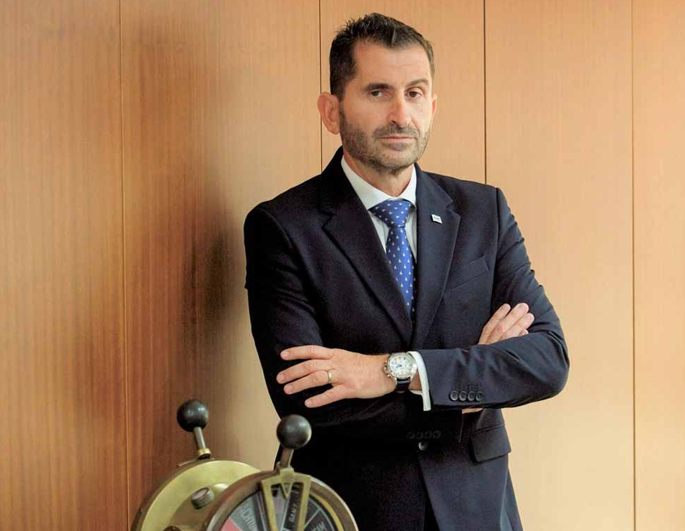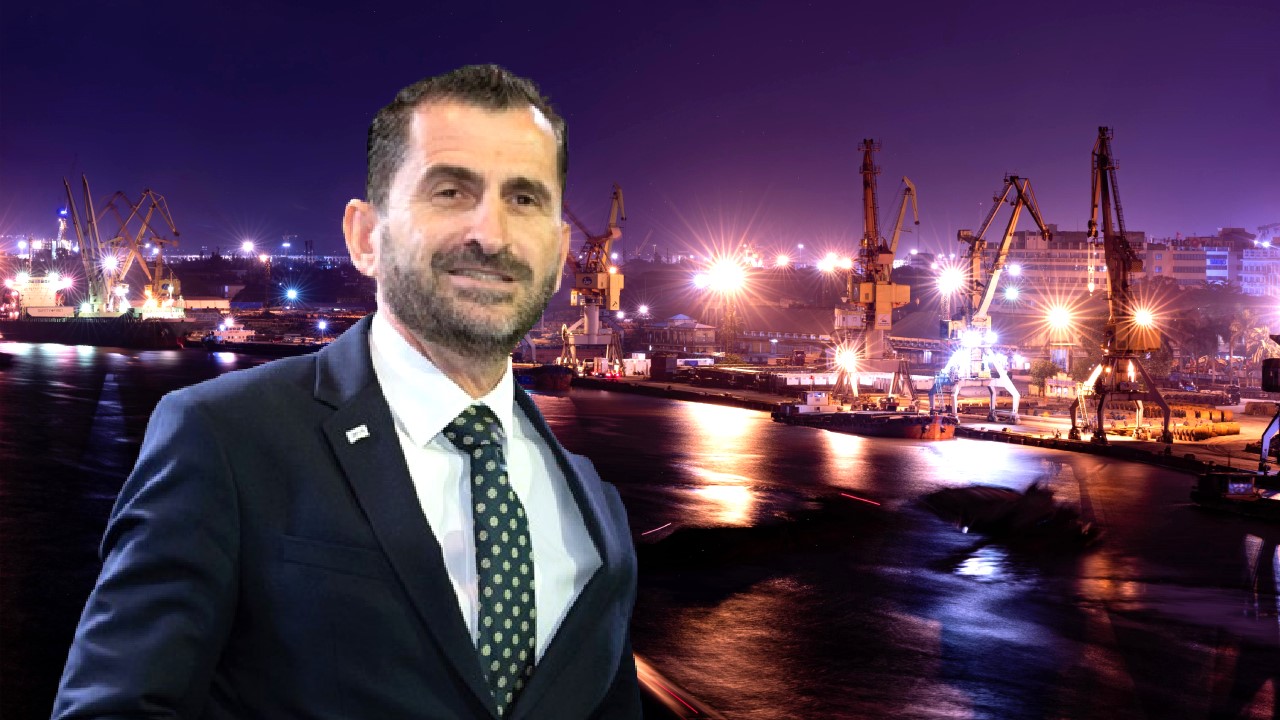Interview of Thomas Kazakos
Secretary General
International Chamber of Shipping
Interview to Dionisis Politis

1. Mr. Kazakos, congratulations on your election as Secretary General of the International Chamber of Shipping (I.C.S.). Would you like to tell us about your journey in shipping to date?
Before joining the International Chamber of Shipping I served as Director General of the Cyprus Shipping Chamber (CSC), the representative National-Member Association of Cyprus at ICS, since 1995. Throughout my time at CSC, I actively participated, together with CSC Board Members, at the ICS Board, contributing to shaping the Association’s strategy on all regulatory, operational, and legal issues concerning the international shipping industry.
Prior to joining CSC I studied law and European and international trade law in the United Kingdom and have always known that I would follow a career in maritime. This industry is not only steeped in history but also resilient – adapting and evolving to the challenges it faces. After over 30 fruitful years in the industry, I look forward to the years ahead as shipping continues to be at the forefront of facilitating global trade.
2. What is the International Chamber of Shipping?
The International Chamber of Shipping (ICS) is the global trade association for shipowners and operators, representing the world’s national shipowner associations and over 80 % of the world merchant fleet. Our membership (from over 40 countries) comprises national shipowners’ associations, through which structure ICS uniquely and legitimately speaks for and represents the significant majority of international shipping. Our national member associations represent shipping companies from all sectors of the shipowner community. These include dry bulk carriers, oil tankers, chemical tankers, gas carriers, container ships, general cargo ships, offshore support vessels, and passenger ships.
ICS was established in 1921 to ensure the development, promotion, and application of best practices throughout the shipping industry. ICS continues to support shipping and be the leading advocate for high operational standards and a regulatory environment embracing safety, environment, open markets and fair competition.
3. Tell us about I.C.S. publications.
ICS Publications promote and support shipping industry best practices and provide guidance across all key sectors and trades of the maritime industry. Our publications are developed with rigour and are regularly used and recommended by ship operators globally. They cover a range of subjects including safety, security, environmental protection, health, welfare and training.
Most recently, at the International Labour Organization’s Special Tripartite Committee Meeting in April on the Maritime Labour Convention, governments, shipowners, and unions met to review and adopt crucial updates that reflect the evolving needs of seafarers and the maritime industry. At this meeting there was an agreement for inclusion of a new provision into the MLC, recommending the carriage of the ICS International Medical Guide for Seafarers and Fishers on board ships, complementing an existing requirement for all ships to carry a medical guide on board. This is hugely significant and how our publications are an important complement to international regulations.
4. Are there other I.C.S. services?
Last year, the International Chamber of Shipping (ICS) launched its ICS Academy to provide on-the-go access to practical e-learning to help shipping companies ensure best practices and regulatory compliance on board.
The Academy has been developed by seafarers, for seafarers, and draws on the collective experience of the ICS membership. The courses that feature on the ICS Academy have been specifically designed to complement ICS Publications, giving crew access to on board procedures and training that work together seamlessly. Currently we have four courses available on our e-learning platform which are globally applicable to all ship types and is regularly updated to meet the changing needs of the shipping industry.
We also jointly own with LR OneOcean ISF Watchkeeper, which is a suite of digital solutions that helps global ship operators to plan, manage and report their crew’s rest hours compliance in accordance with International Convention on Standards of Training, Certification and Watchkeeping for Seafarers (STCW) and the Maritime Labour Convention (MLC). The software is used by more than 180,000 seafarers for calculating seafarers’ rest hours and planning work schedules.

5. What are your immediate goals as Secretary General?
My immediate priorities are the ongoing work at the IMO which includes MEPC, the IMO Net Zero Framework and decarbonising the industry to meet net zero by 2050. Whilst the agreement is complex, with fundamental elements such as rewards for the use of Zero/Near Zero fuels still to be finalised, ICS welcomes the ‘IMO net zero framework’, which is a significant political achievement and, if adopted, will make shipping the first sector to have a globally agreed carbon price.
I will also be focusing on other work at the IMO including the ongoing STCW review. Simultaneously I am looking forward to continuing the work with the International Labour Organization and the recent amendments adopted to the MLC for the designation and recognition of seafarers as key workers. Seafarers are the very heart of our industry so we will continue to support them during these troubled and turbulent times.
As we move forward on our decarbonisation journey, I look forward to the ICS continuing to support the development of the infrastructure for the transportation of new zero emission fuels, ensuring a just transition for seafarers so governments understand how to best support them as we train and recruit a workforce of the future. This includes moving forward with technological innovation and making sure that our seafarers are kept at the forefront of all decisions.
We will also focus our attention on the increasing trend of protectionism and advocate for free trade. Global trade should not be hindered by unilateral measures, whilst they may be well meaning have significant unintended consequences. The recent work that the ICS has been contributing to regarding the USTR Section 301 proposed remedies will also be a focus as well as other key trade policy issues such as the current FMC investigation into maritime chokepoints. We will be hosting another Summit meeting in Hong Kong in November to address these topics.
As technology advances we must also ensure that our industry is resilient to cyber risk, a growing concern for maritime leaders as shown by the recent results of our ICS Maritime Barometer Survey. We will continue to monitor these challenges, ensuring we most up-to-date information and supporting publications that are relevant to the industry.
Finally, another important priority for me is to maintain close cooperation with our ICS member associations. Our members are the backbone of our organisation and the strength. We are currently navigating a very volatile operating environment and continued collaboration with our members and stakeholders is what will ensure shipping’s resilience for a sustainable future for the industry.
6. Can we have your opinion on the latest dramatic events between Israel & Iran?
Sadly, there are geopolitical conflicts globally that are impacting our industry. What is key is that in times of uncertainty and volatility the main priority must be that our seafarers’ lives are not impacted by any conflict. Our seafarers are innocent bystanders, and we call on all parties to ensure their safety.










